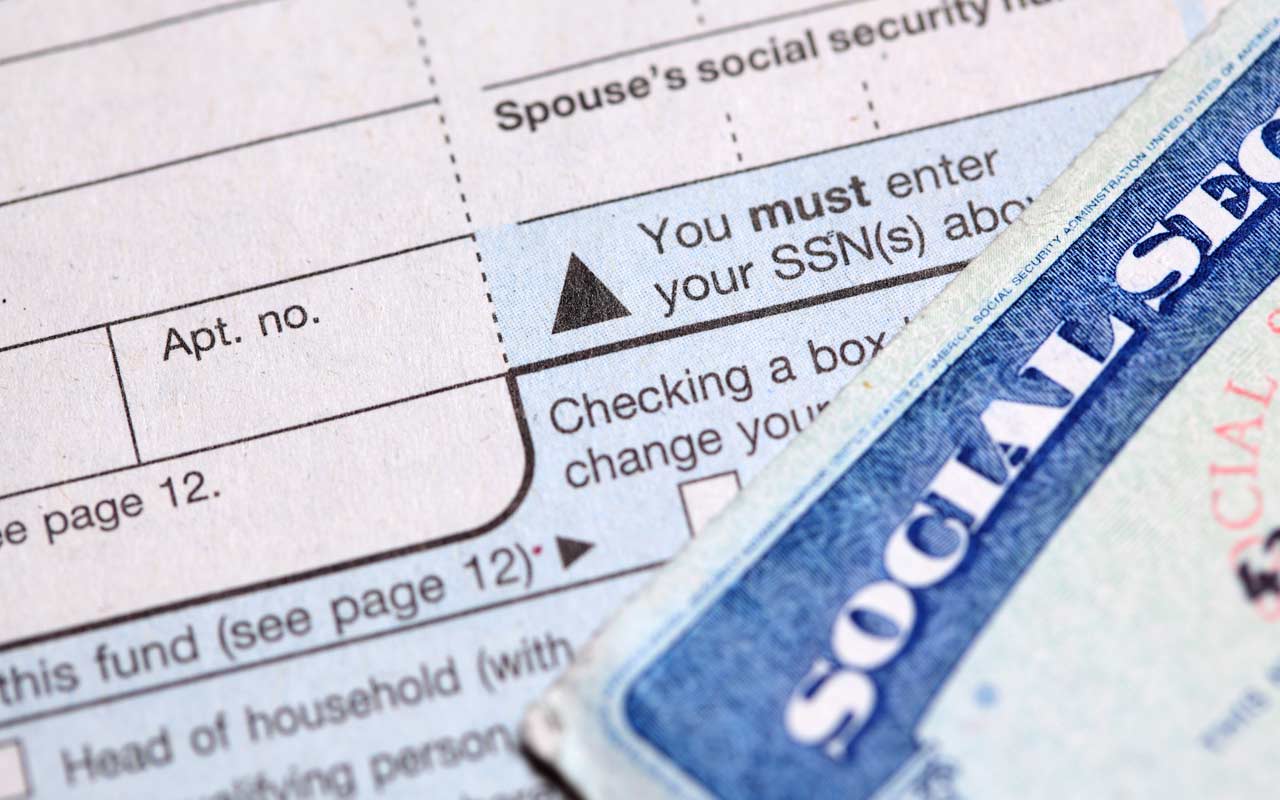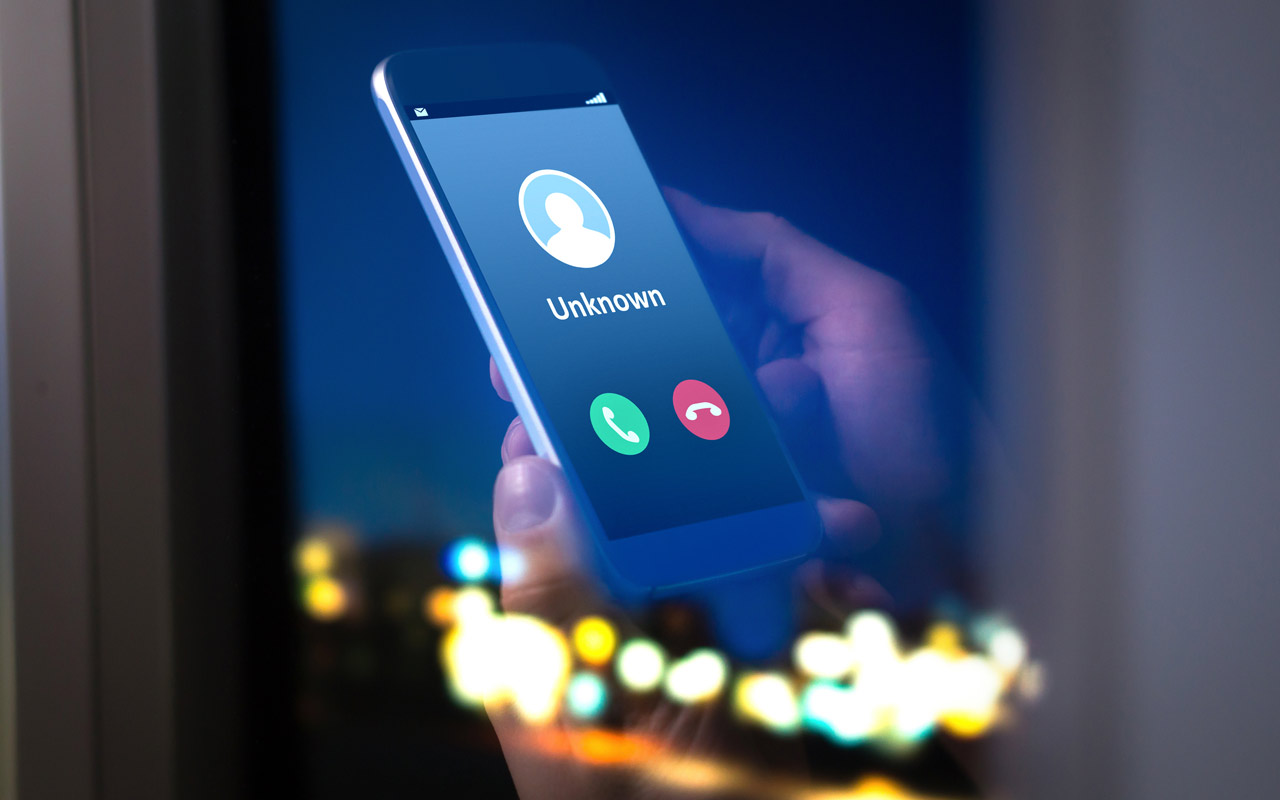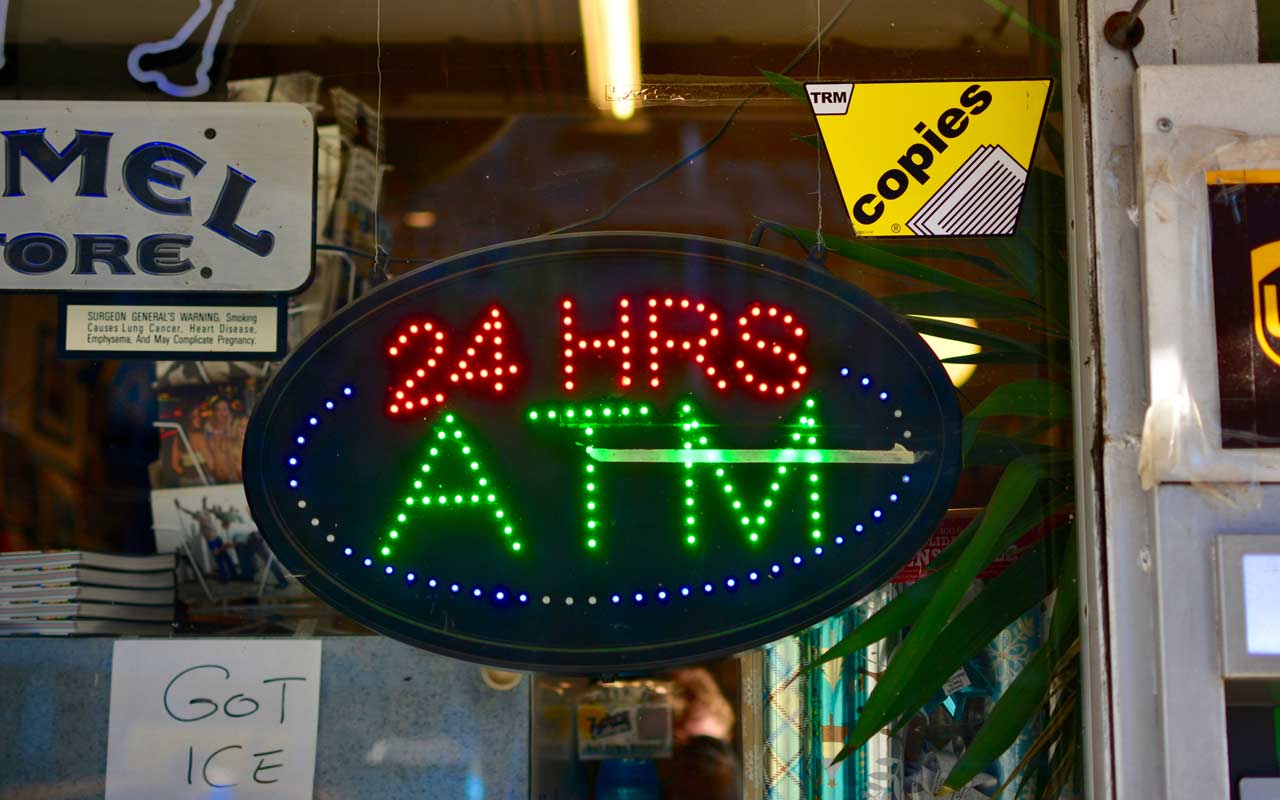
Profit and prosper with the best of Kiplinger's advice on investing, taxes, retirement, personal finance and much more. Delivered daily. Enter your email in the box and click Sign Me Up.
You are now subscribed
Your newsletter sign-up was successful
Want to add more newsletters?

Delivered daily
Kiplinger Today
Profit and prosper with the best of Kiplinger's advice on investing, taxes, retirement, personal finance and much more delivered daily. Smart money moves start here.

Sent five days a week
Kiplinger A Step Ahead
Get practical help to make better financial decisions in your everyday life, from spending to savings on top deals.

Delivered daily
Kiplinger Closing Bell
Get today's biggest financial and investing headlines delivered to your inbox every day the U.S. stock market is open.

Sent twice a week
Kiplinger Adviser Intel
Financial pros across the country share best practices and fresh tactics to preserve and grow your wealth.

Delivered weekly
Kiplinger Tax Tips
Trim your federal and state tax bills with practical tax-planning and tax-cutting strategies.

Sent twice a week
Kiplinger Retirement Tips
Your twice-a-week guide to planning and enjoying a financially secure and richly rewarding retirement

Sent bimonthly.
Kiplinger Adviser Angle
Insights for advisers, wealth managers and other financial professionals.

Sent twice a week
Kiplinger Investing Weekly
Your twice-a-week roundup of promising stocks, funds, companies and industries you should consider, ones you should avoid, and why.

Sent weekly for six weeks
Kiplinger Invest for Retirement
Your step-by-step six-part series on how to invest for retirement, from devising a successful strategy to exactly which investments to choose.
Scams can hit anyone at any age, but falling victim to fraud is especially painful for retirees, many of whom are counting on the fixed income from their nest eggs and Social Security benefits to last through retirement.
According to Federal Trade Commission data, 1.1 million frauds were reported in 2017, with 21% of the fraud victims suffering a financial loss. Fraud losses for all ages totaled $905 million in 2017, with a median loss of $429 per victim. Retirement-age fraud victims tend to lose more money to scams than younger victims. The median fraud loss was $500 for victims in their 60s, $621 for victims in their 70s, and $1,092 for victims 80 and over. More than 107,000 Americans ages 60 to 69 reported being victims of fraud last year, the highest total of any age range tracked by the FTC.
So how are retirees being swindled? In more ways than you can imagine. Here are some of the most common scams being run today, along with advice from fraud experts on how to avoid getting ripped off.

Medicare Card Scams
In an effort to deter identity theft, the federal government is in the process of replacing all Medicare cardswith new cards that don’t have Social Security numbers printed on them. The new cards started going out in waves last April, and everyone should have a new replacement card in hand by April 2019. That’s the good news.
The bad news: Phone scammers are using this yearlong rollout as an opportunity to defraud Medicare recipients. The FTC is getting reports of various scam tactics, ranging from callers claiming to be Medicare representatives asking you to verify personal information (which could be used for identity theft) to offering to send you a new plastic Medicare card for a fee (legit cards are paper, and there is no fee).
Kathy Stokes, interim director of AARP’s Fraud Watch Network, says another variation on the scam involves a caller claiming that your old Medicare card has a balance on it that can be transferred to your new card – if you provide your bank account and routing numbers. Hang up. Unless you contacted Medicare and specifically left a message requesting a call back, says Stokes, “chances are slim to none it’s actually Medicare calling you.”

Social Security Suspension Scams
One scam targeting retirees that the FTC is seeing more of starts with a phone call from someone claiming to be with the Social Security Administration. The caller tells you that your Social Security number has been suspended, perhaps due to fraud or other criminal activity. The caller sounds very official and very convincing. All you need to do to get your Social Security number reactivated is provide the caller with personal information including the details of the bank account where your benefits are being deposited. Don’t.
- “The Social Security Administration is not going to call you and tell you your benefits are suspended,” says AARP’s Stokes. She recommends that everyone open an online account with Social Security. Not only can the account be used for official communications with the agency, but it also prevents scammers from opening a fraudulent account in your name and claiming your Social Security benefits.

Gift Card Scams
Thinking about getting those hard-to-shop-for grandkids gift cards for the holidays? Think twice before you do. Fraud.org, a website operated by the National Consumers League, reports a spike in fraud involving gift cards.
Here’s what’s going on: Thieves are stealing the numbers, including the scratch-off security codes, from the gift cards while they’re still hanging on the sales rack in stores. Once the card is purchased and activated at the register, the thief drains the value of the gift card by quickly making online purchases. Software makes it easy for scammers to check balances online and be alerted once the gift cards have been activated.
Fraud.org recommends that you avoid buying gift cards that aren’t in secure packaging. In some cases, the thieves are actually replacing the scratch-off foil covering the security codes to disguise their tampering. Carefully inspect packaging before purchasing a gift card, and pay particular attention to the scratch-off foil covering. If it’s crooked, oversized or peeling, don’t buy it. Alternatively, purchase electronic gift cards (delivered by email) rather than physical gift cards.

Sweepstakes Fake Check Scams
That $9,000 prize check you received in the mail for winning a sweepstakes you never entered will cost you money – lots of money – if you deposit it and follow the scammer’s instructions, says Stokes.
- Americans reported losing $95 million last year to the many variations of sweepstakes and lottery scams, according to the FTC. Here’s how one variation, the fake-prize-check-in-the-mail scam, can play out. You receive a congratulatory letter along with with a check for a portion of the prize. You’re instructed to deposit the check, then wire back some of the money to cover fees, taxes or some other seemingly plausible expense. Once you do, the letter promises you will receive the rest of your prize money. Lucky you?
In reality, you’re being suckered. When that check bounces, you’re liable for bank fees, any portion of the original deposit you already spent, plus any amount you wired back to the scammers. “Checks take a while to clear, so by that time, the scammers are gone and so is your money,” says Stokes.

Utility Bill Scams
Phone scammers are calling up utility customers and threatening to cut off electricity, gas or water services if past-due bills aren’t paid immediately. Scammers often demand payment over the phone by credit card, or they request unusual payment methods such as gift cards, reloadable cash cards or even cryptocurrencies, warns the FTC.
“You know that utility companies are not going to work in that way,” says Stokes of AARP. “If you’re having a problem paying your bills, you’re going to hear from the utility company by several letters, at least, until you get a phone call.”
In addition, Stokes says scammers are emailing and snail-mailing fake utility bills that look genuine. To avoid falling for a fake bill, she recommends setting up an online account with each utility company and paying utility bills online. Online accounts also allow you to check balances instantly to see if any are really past due.

Fake Family Emergencies
This one’s often called the “grandparent scam” because scammers usually target the elderly, and usually late at night to help infuse more confusion. The grandparent will receive a phone call from someone posing as a friend of the grandchild, a police officer or perhaps a lawyer representing the grandchild. The caller will claim the grandchild needs urgent help. Further, the grandparent will be urged not to tell the parents or anyone else because the grandchild is “already in enough trouble.”
What’s the scammer angling for? Money wired immediately to cover purported hospital bills, bail, a plane ticket home – whatever fits the narrative of the particular scam. A disturbing variation on the scam involves a caller posing as a kidnapper and demanding ransom for the safe return of the grandchild. Some scammers use social media to learn details about victims to sound more convincing.
Red flags include the urgency to wire money and the unwillingness of the caller to put the grandchild on the phone. The New York State Attorney General’s Office, which recently busted a sophisticated family-emergency ring, advises anyone who receives such a call not to give out personal information or wire money to a stranger. Instead, hang up, contact your grandchild to confirm his or her safety, and report the call to the police – especially if it was threatening.

Romance Scams
Retirees, whether widowed, divorced or never married, are looking for love online, and unfortunately for them dating sites are ripe for abuse by scammers pretending to love them back.
- “Romance scams are targeting the older community more and more,” says AARP’s Stokes. “[Older adults are] getting online, getting on a dating site to meet someone, finding the perfect match, the love of your life -- then the requests start coming.”
A common thread of romance scams is the inability of the scammer to meet the victim in person, perhaps because the scammer claims to be overseas on business or stationed abroad in the military. The initial request for money can revolve around paying for a flight to visit, but once the money is wired the scammer will make excuses to postpone the trip. Now that the victim’s trust has been gained, the scammer may feign family emergencies, accidents or temporary business setbacks as reason not only for further trip delays but also for requests for additional money.
“They string them on and string them on and string them on,” says Stokes. “People literally lose thousands and thousands of dollars to these romance scams.”
Quick pronouncements of love, requests to wire money to foreign bank accounts and repeated excuses for not being able to meet in person (especially if the person claims it’s because he or she is overseas) are among the surest signs of a romance scam, according to Fraud.org.

Credit Card Skimming
Next time you pull over to fill up the tank, take a close look at the gas pump before you swipe your debit or credit card. Gas station point-of-sale card readers are frequent targets of scammers, who attach “skimming” devices on top of the real units to steal your account information when you insert or swipe your card.
Even Stokes, AARP’s fraud expert, was the victim of a skimming device at a gas station. Her bank caught the fraud quickly, she says, but she had to replace the card. Lesson learned. To avoid skimming devices at gas pumps, Stokes recommends either paying in cash or paying with a credit card inside rather than at the pump.
Along the same lines, beware the standalone ATMs not associated with a major bank that you often see at gas stations and drugstores. “Those are hot for scammers,” Stokes adds.

Phony Vacation Rentals
Looking forward to traveling more now that you’re retired? Good for you. Just be sure to use caution as you plan your trips. The median loss for travel-related fraud, including deceptive offers for timeshares and low-cost vacation packages, was $1,710 per occurrence in 2017. That’s the highest amount for any fraud tracked by the FTC.
Vacation rentals are particularly susceptible to scams. Scammers even go so far as to set up phony listings using attractive photos and descriptions of properties stolen from legit vacation rental websites.
“It’s really, really easy for scammers to go online and copy the information about the vacation property and post it themselves,” says Stokes. “People will put in their information and think they’ve rented a place and then go there the day of and find either the property is being rented by someone else … or they go there and there is actually no ‘there’ there.”
Sites such as Airbnb.com and VRBO.com have safeguards in place to deter scams. Consider using one of them to book a vacation rental. Be wary when using a less-regulated site such as Craigslist.org, and watch for fake sites that are named and designed to look like legitimate sites.

Government Imposter Scams
Imposter scams are far and away the biggest category of fraud tracked by the FTC, resulting in more than $328 million in reported losses last year. The majority of imposter scams involve people pretending to be government officials. The rest involve imposters pretending to be friends, family members, love interests, business representatives and tech support workers.
- Bottom line: Be suspicious of anyone contacting you out of the blue claiming to be a government official and demanding that you divulge sensitive personal or financial information. Ditto for demands that you immediately wire money.
“Medicare is not going to call you. Social Security is not going to call you,” says AARP’s Stokes. “The IRS will reach out to you many times by mail if you have back taxes as an issue before you would get a phone call. Same thing with local government: The court clerk isn’t going to call because you missed jury duty and require you to pay a fine or face arrest. You’ll be contacted by mail first.”

Top 10 Fraud Scams
Below are the top 10 fraud categories, based on the number of complaints received by the FTC in 2017, followed by the total dollar losses reported by scam victims:
- Imposter scams: 347,829 reports; $328 million lost.
- Telephone and mobile services: 149,578 reports; $17 million lost.
- Prizes, sweepstakes and lotteries : 142,870 reports; $95 million lost.
- Shop-at-home and catalog sales: 126,387 reports; $94 million lost.
- Internet services: 45,093 reports; $19 million lost.
- Foreign money offers and counterfeit check scams: 31,980 reports; $34 million lost.
- Travel, vacations and timeshare plans: 22,264 reports; $38 million lost.
- Business and job opportunities: 18,702 reports; $47 million lost.
- Advance payment for credit services: 17,762 reports; $15 million lost.
- Health care: 10,321 reports; $1 million lost.
Profit and prosper with the best of Kiplinger's advice on investing, taxes, retirement, personal finance and much more. Delivered daily. Enter your email in the box and click Sign Me Up.

Bob was Senior Editor at Kiplinger.com for seven years and is now a contributor to the website. He has more than 40 years of experience in online, print and visual journalism. Bob has worked as an award-winning writer and editor in the Washington, D.C., market as well as at news organizations in New York, Michigan and California. Bob joined Kiplinger in 2016, bringing a wealth of expertise covering retail, entertainment, and money-saving trends and topics. He was one of the first journalists at a daily news organization to aggressively cover retail as a specialty and has been lauded in the retail industry for his expertise. Bob has also been an adjunct and associate professor of print, online and visual journalism at Syracuse University and Ithaca College. He has a master’s degree from Syracuse University’s S.I. Newhouse School of Public Communications and a bachelor’s degree in communications and theater from Hope College.
-
 Stocks Sink With Alphabet, Bitcoin: Stock Market Today
Stocks Sink With Alphabet, Bitcoin: Stock Market TodayA dismal round of jobs data did little to lift sentiment on Thursday.
-
 Betting on Super Bowl 2026? New IRS Tax Changes Could Cost You
Betting on Super Bowl 2026? New IRS Tax Changes Could Cost YouTaxable Income When Super Bowl LX hype fades, some fans may be surprised to learn that sports betting tax rules have shifted.
-
 How Much It Costs to Host a Super Bowl Party in 2026
How Much It Costs to Host a Super Bowl Party in 2026Hosting a Super Bowl party in 2026 could cost you. Here's a breakdown of food, drink and entertainment costs — plus ways to save.
-
 States That Tax Social Security Benefits in 2026
States That Tax Social Security Benefits in 2026Retirement Tax Not all retirees who live in states that tax Social Security benefits have to pay state income taxes. Will your benefits be taxed?
-
 Seven Things You Should Do Now if You Think Your Identity Was Stolen
Seven Things You Should Do Now if You Think Your Identity Was StolenIf you suspect your identity was stolen, there are several steps you can take to protect yourself, but make sure you take action fast.
-
 The 8 Financial Documents You Should Always Shred
The 8 Financial Documents You Should Always ShredIdentity Theft The financial documents piling up at home put you at risk of fraud. Learn the eight types of financial documents you should always shred to protect yourself.
-
 How to Guard Against the New Generation of Fraud and Identity Theft
How to Guard Against the New Generation of Fraud and Identity TheftIdentity Theft Fraud and identity theft are getting more sophisticated and harder to spot. Stay ahead of the scammers with our advice.
-
 12 Ways to Protect Yourself From Fraud and Scams
12 Ways to Protect Yourself From Fraud and ScamsIdentity Theft Think you can spot the telltale signs of frauds and scams? Follow these 12 tips to stay safe from evolving threats and prevent others from falling victim.
-
 Watch Out for These Travel Scams This Summer
Watch Out for These Travel Scams This SummerIdentity Theft These travel scams are easy to fall for and could wreck your summer. Take a moment to read up on the warning signs and simple ways to protect yourself.
-
 What to Do With Your Tax Refund: 6 Ways to Bring Growth
What to Do With Your Tax Refund: 6 Ways to Bring GrowthUse your 2024 tax refund to boost short-term or long-term financial goals by putting it in one of these six places.
-
 What Does Medicare Not Cover? Eight Things You Should Know
What Does Medicare Not Cover? Eight Things You Should KnowMedicare Part A and Part B leave gaps in your healthcare coverage. But Medicare Advantage has problems, too.

